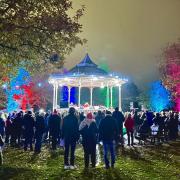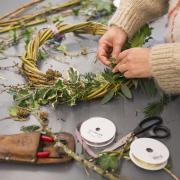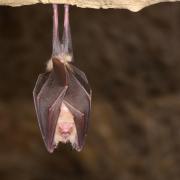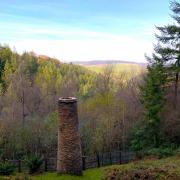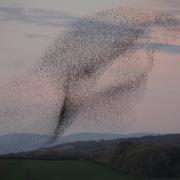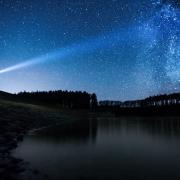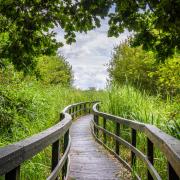At the tender age of 16, Ben Pulletz picked up a camera and began shooting the sunset and sunrise around his village of Charlton Adam. By the time he was 19, Ben had won the under 20 category in the Siena International Photo Awards.
Now, at just 21 years of age, he is a full time photographer whose work has been featured in the British Wildlife Photography book as well as currently partnering with Co-op with a greetings cards range. Keen to share his love for wildlife photography Ben shares his top 4 tips of how you too can capture the natural world on your camera.

1. Know your local patch.
When I first started my nature photography, everything I photographed was on my local patch and even to this day I photograph a lot of my work locally. Every situation, every subject, I have an idea of where it is going to be. My first picture was a 'Peek-a-Roe, looking straight at my camera. With the field being just a few miles away from my home I went back at different times of the day to watch this particular Roe Deer and her habits. Once I knew roughly where in which field she liked to be in, I eventually captured her in this position.
2. Look at all angles.
Photography is often challenging and knowing how things are going to plan out is always a mystery - but that’s why I love it! Getting home with average photos or sometimes, even nothing, is a regular occurrence. Every time I go to a location, whether that is a local field, or nature reserve I will pick up on certain things that I might not have noticed before. Plus, being out and about is important - whatever the weather. It's key to remember that when there is 'nothing to see', you will have more time to look around at your surroundings. And remember, don’t always look at what is directly in-front of you, look upwards too as you never know what is watching you! Once, on location at a local woodland, I was focusing on the birds a short distance in front from my camera. To my surprise, for the whole hour that I was laid down, a beautiful Tawny Owl was in a tree above my head watching me the whole time!

3. Keep your mobile phone on silent
A tough lesson I found out shortly after starting my nature photography. I had a pair of Mistle Thrushes just a few feet away from my camera and I was so excited to see them so close particularly because they are in sharp decline and rare to spot in Somerset. I carried on watching them and then my phone started ringing! They obviously flew away and I was really frustrated. A mistake I never made again. Luckily, after continually revisiting the same field for several weeks I got some good shots which made up for it in the end, but my phone is always on silent now!
4. Making the most of an opportunity
Rather than zooming in on a subject, zoom out and include the background. Incorporating an animals habitat can work well. Every time I’m out, I learn something new, and every day the light is different. During 'golden hour', as the light changes and becomes more colourful, things in front of you like fence posts and gates can become more eye catching with the sun glowing and beaming on them. Something that initially was quite boring can suddenly become an interesting background. Often it is good to stop and look around as there might be something you had not noticed earlier in different lighting conditions. When photographing nature, put yourself as the subject and try and understand the movement and behaviours. For example, hare and deer both like particular areas of a field. Never give up on a particular shot you have in mind. I never give up on any picture because you never know how close you were to getting that image. Keep on persevering, being persistent and good luck!
You can purchase Ben's greetings cards from Co-op shops as well as by visiting his website feathersandhills.com. Ben also welcomes you to look at his photography via instagram @feathersandhills and @benpulletz




